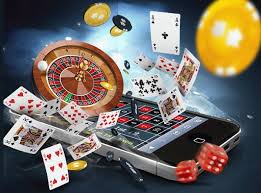
In a world filled with uncertainties, the concept of luck has always played a significant role in human lives. From games of chance to crucial decision-making processes, the Hand of Luck https://hand-of-luck.co.uk/ serves as a metaphorical representation of how unforeseen circumstances can shape our destinies. In this exploration of luck’s influence, we delve into its various interpretations, historical evolution, and its psychological dimensions, all of which intricately weave into the fabric of human existence.
Understanding Luck: A Double-Edged Sword
Luck is often seen as a force—an intangible element that can bestow blessings or inflict misfortunes. This dual nature leads to a diverse range of interpretations. Philosophers and scholars have long debated whether luck is a mere coincidence or a guiding hand that steers our lives. Throughout history, cultures have either revered or reviled luck, turning it into a folklore of sorts, enriched with superstitions and beliefs.
The Historical Journey of Luck
Historically, luck has been intertwined with various mythologies and religions. In ancient times, gods were often associated with fortune, prosperity, and destiny. The Greeks had Tyche, the goddess representing chance, while the Romans observed Fortuna. Similarly, in Eastern philosophies, concepts like karma connect luck with moral actions, suggesting that one’s fate is earned through behavior rather than random chance.
Luck in Modern Society
Contemporary society has transformed the perception of luck. With advancements in psychology and behavioral economics, the randomness of luck has been juxtaposed with the predictability of human behavior. The randomness of luck is often viewed through the lens of probability in games of chance, including lottery, casinos, and sports betting. The ‘Hand of Luck’ in this context implies that while we can strategize and create opportunities, the outcome remains unpredictable.
Coping with Bad Luck
Everyone encounters periods of bad luck. Such experiences can be frustrating and disheartening. However, it’s essential to recognize that we have the power to respond to these situations in constructive ways. Developing resilience, learning from setbacks, and maintaining a positive attitude can be valuable tools in transforming perceived misfortune into eventual success.
Luck vs. Skill: The Ongoing Debate
The debate over luck versus skill is particularly relevant in competitive environments, whether in sports, business, or artistic endeavors. While luck can provide the necessary breakthrough, skill often plays a more substantial role in sustaining success. For example, a poker player may benefit from luck in a single hand, but consistent success requires strategic thinking, psychological resilience, and expertise. Thus, the ‘Hand of Luck’ may offer opportunities, but skill decides how one capitalizes on them.

Superstitions and Rituals: Everyone Has a Tale
Across cultures, people engage in rituals or superstitions believed to attract good fortune or ward off bad luck. Whether it’s carrying a rabbit’s foot, tossing salt over one’s shoulder, or avoiding black cats, these practices highlight the human desire to exert control over randomness. They provide comfort in an unpredictable world, allowing individuals to feel empowered amidst uncertainties.
Luck’s Psychological Impact
Understanding luck also involves exploring its psychological impact. Studies in psychology reveal that belief in luck can influence behavior and decision-making. Those who consider themselves lucky tend to approach challenges with a more optimistic outlook, fostering resilience. Conversely, those who perceive themselves as unlucky may fall into a self-fulfilling prophecy, affecting their mental health and life choices.
The Science of Randomness: Is Luck Just Illusion?
In the field of mathematics and statistics, randomness is well-defined, characterized by unpredictability. Yet, people often perceive patterns where none exist, leading to the gambler’s fallacy—believing that past events influence future outcomes in games of chance. This highlights the complexity of human cognition when confronting luck and randomness. The ‘Hand of Luck’ symbolizes these unpredictable occurrences, illustrating our tendency to seek explanation and meaning in the chaos.
Practical Tips for Attracting Luck
While luck may seem random, there are practical tips one can adopt to enhance the likelihood of good fortune. Open-mindedness to new experiences, fostering positive relationships, and maintaining a proactive attitude can position individuals to receive favorable opportunities. Networking, continuous learning, and embracing change can significantly tilt the ‘Hand of Luck’ in one’s favor, creating an environment ripe for success.
Conclusion: The Dance of Luck and Life
Ultimately, the ‘Hand of Luck’ serves as a reminder of life’s unpredictable nature. While we may not control all outcomes, navigating through life with a blend of skill, resilience, and an open heart toward the possibilities can lead to fulfilling experiences. Whether you believe in luck or view it through a more pragmatic lens, embracing the mystery can enrich your journey. Luck may not be a definitive guide, but it certainly adds a touch of magic to the everyday rhythm of life.